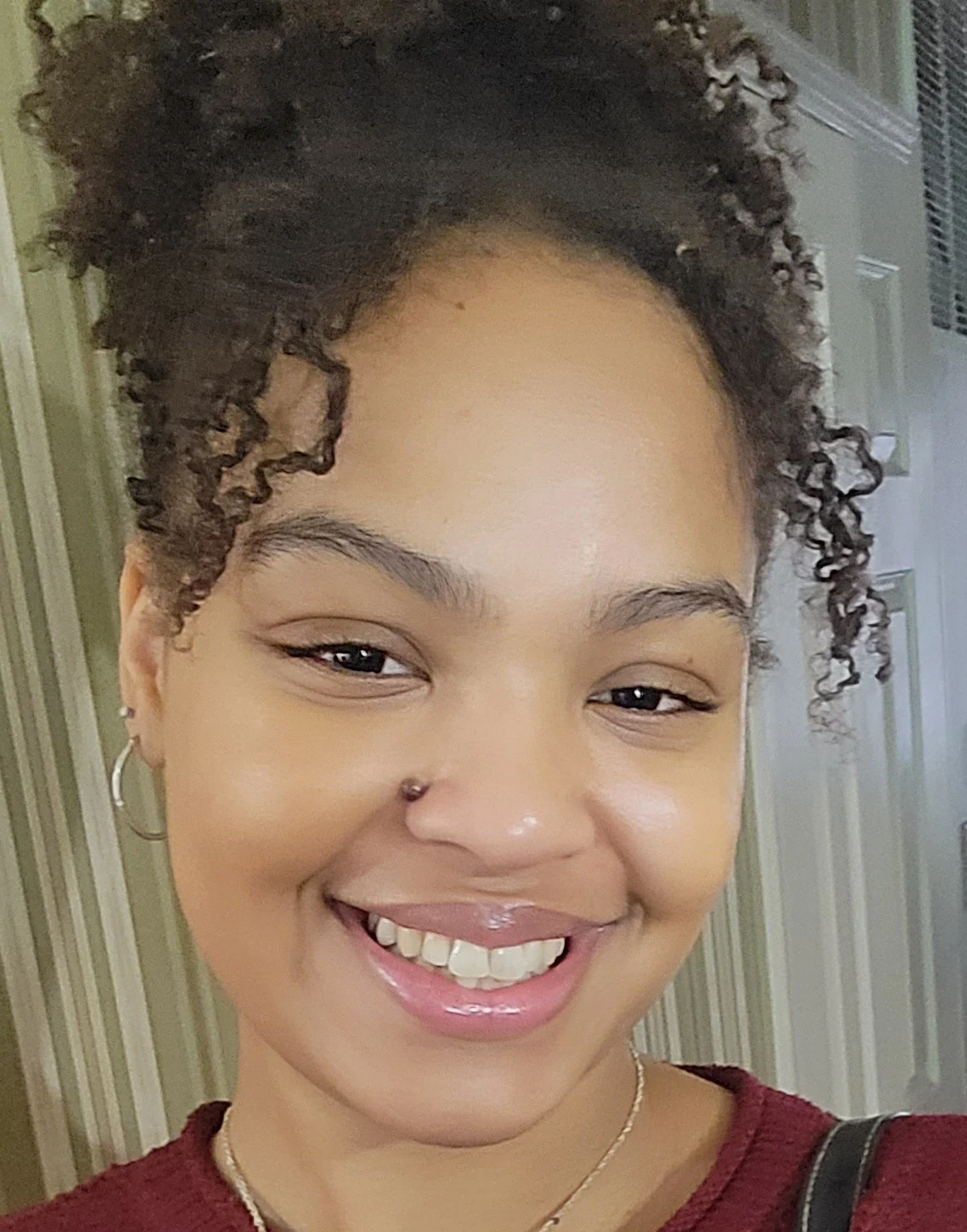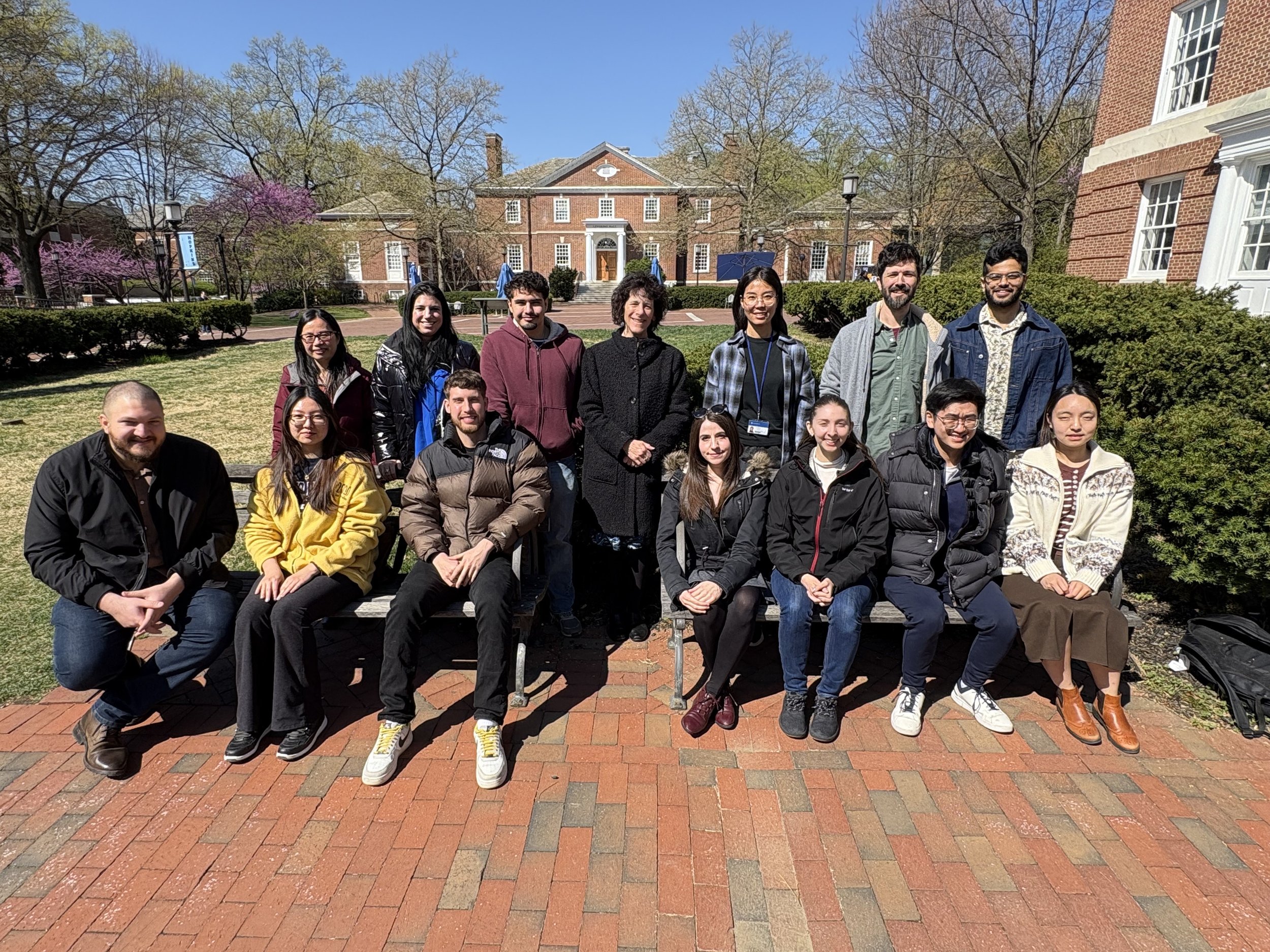Meet the Team
-

Cynthia F. Moss
Ph.D. Professor
My journey into sensory-guided behavior began with studies on diverse sensory systems in animals, from gustatory responses in blowflies to echolocation in bats. Today, my lab explores how sensory processing, memory, and navigation shape behavior, fueled by a collaborative team of curious researchers.
-

Susanne J. Sterbing
Ph.D. Asst. Research Professor
Echolocating bats masterfully navigate complex environments, from dodging obstacles to catching prey and landing in tight spaces. Their flight control relies on multisensory inputs—auditory, tactile, and proprioceptive—that guide adaptive motor behaviors. I study these sensory components to understand how bats achieve such remarkable agility and precision in flight.
-

Kirsten (Kisi) Bohn
Ph.D. Asst. Research Professor
I'm fascinated by the evolution of vocal and social complexity. While human vocal abilities are unparalleled, studying their origins is challenging. By adding bats—with their rich vocal diversity and social behaviors—as a model alongside birds, we aim to uncover new insights into the evolution of complex vocalizations and social cooperation, including human speech.
-

Jennifer Lawlor, Ph.D.
My work focuses on processing and extraction of relevant information of auditory scenes for goal-directed behavior. I use a combination of behavioral models (humans, bats, mice...) to study how state-dependent changes and context can influence perception first, leading to optimization of decision-making and ultimately output behavior.
-

Davi Drieskens, Ph.D.
I'm passionate about studying the mechanisms of the brain and body during natural behavior. I'm interested in systems neuroscience, behavioral physiology, and neuroethology. Here in the Batlab, I'll study the midbrain neural mechanisms that transform visual and auditory sensory information into motor commands guiding natural behaviors.
-

Nikita Finger, Ph.D.
I'm fascinated by how animals perceive their world through different senses. In the JHU Batlab, I study how bats gather environmental information and form spatial maps using various sensory modalities like echolocation and vision, making them an ideal model for multisensory integration. My work also examines how bats adjust their call parameters—intensity, frequency, and sonar beam—when navigating diverse environments and tasks, such as foraging.
-

Grace Capshaw
I earned my PhD at the University of Maryland, College Park, where I studied bone conduction, vibration sensing, and the evolution of sound detection in tetrapods with Dr. Catherine Carr. Now, I’m working on projects that bridge the Moss lab and Dr. Amanda Lauer’s lab, exploring auditory specializations in bats, including resistance to noise and age-related hearing loss.
-

Aditya Krishna
Graduate Student
I grew up in Kerala, India, and graduated with a BS-MS in Biology from the Indian Institute of Science Education and Research Mohali. Before joining the lab, I worked with Dr. Holger Goerlitz at the Max Planck Institute of Ornithology, studying how echolocating bats navigate in groups. Now, I focus on hippocampal circuits involved in representing external objects. Outside the lab, I enjoy lifting weights and riding my motorcycle.
-

Keegan Eveland
Graduate Student
I'm driven by a fascination with how animals adapt to complex acoustic environments, especially bats, whose sensory abilities allow them to thrive where others struggle. My journey into behavioral biology began with studying how memory aids navigation in Egyptian fruit bats and how Brazilian free-tailed bats avoid collisions in crowded swarms. Now, I focus on uncovering the physiological and neural mechanisms that enable bats to maintain sensitive hearing amid constant sonar noise, using advanced techniques in auditory tracking, neural modulation, and physiological analysis.
-

Jared Magdiel Jaroszewski
Graduate Student
I'm from San Antonio, Texas, and completed my B.S. in Biology at St. Mary’s University. After a post-baccalaureate internship at Johns Hopkins studying spatial attention in bats, I joined the Batlab as a graduate student. My research focuses on how bats use sonar to navigate familiar environments, tracking their echolocation to study spatial attention and memory. As a Vivien Thomas Scholar, I’m also dedicated to promoting diversity and inclusivity in academia.
-

Rie Kaneko
Graduate Student
I grew up in Yokohama, Japan and have been fascinated by animal behaviors since childhood. This led to my curiosity about the neural mechanisms that allow animals to produce flexible decision making and adaptive behavior. Here in the Batlab, my research focuses on dynamic neural encoding of sensory-guided action planning in a natural setting. Outside the lab, I enjoy desserts and watching birds.
-

Leslie Bucio
Honors
-

John Michael Cole
Undergraduate
-

Maxwell Rho
Undergraduate
-

Rachel Timothy
Undergraduate
-

Alexander Zambrano Tapia
Undergraduate
-

Yiwen (Eva) Liu
Undergraduate
-

Irene Park
Undergraduate
-

Nick Hwang
Undergraduate
I am interested in the intersection of neuroanatomy and behavior, particularly how brain structure supports complex cognitive processes. In the JHU Batlab, I am investigating spatial working memory in bats to better understand the neural mechanisms underlying memory and navigation.
-

Kayla A Sinkler
Undergraduate
I am an undergraduate majoring in Neuroscience who is passionate about using computational models in brain research and assessing how they can help improve our learning. I am also interested in investigating how specific circuits and systems in the brain are structured to optimize performance and how slight variations in these systems can prevent us from being healthy.
-

Wei Xian
Lab Manager
-
Jake Sayles
Research Specialist

Collaborators
-

Kishore Kuchibhotla
-

-

Nachum Ulanovsky
-

-

-

-

-

Herbert Peremans
-

-

-

-

Ulrich Mueller
-

Kathleen Cullen
-

-
